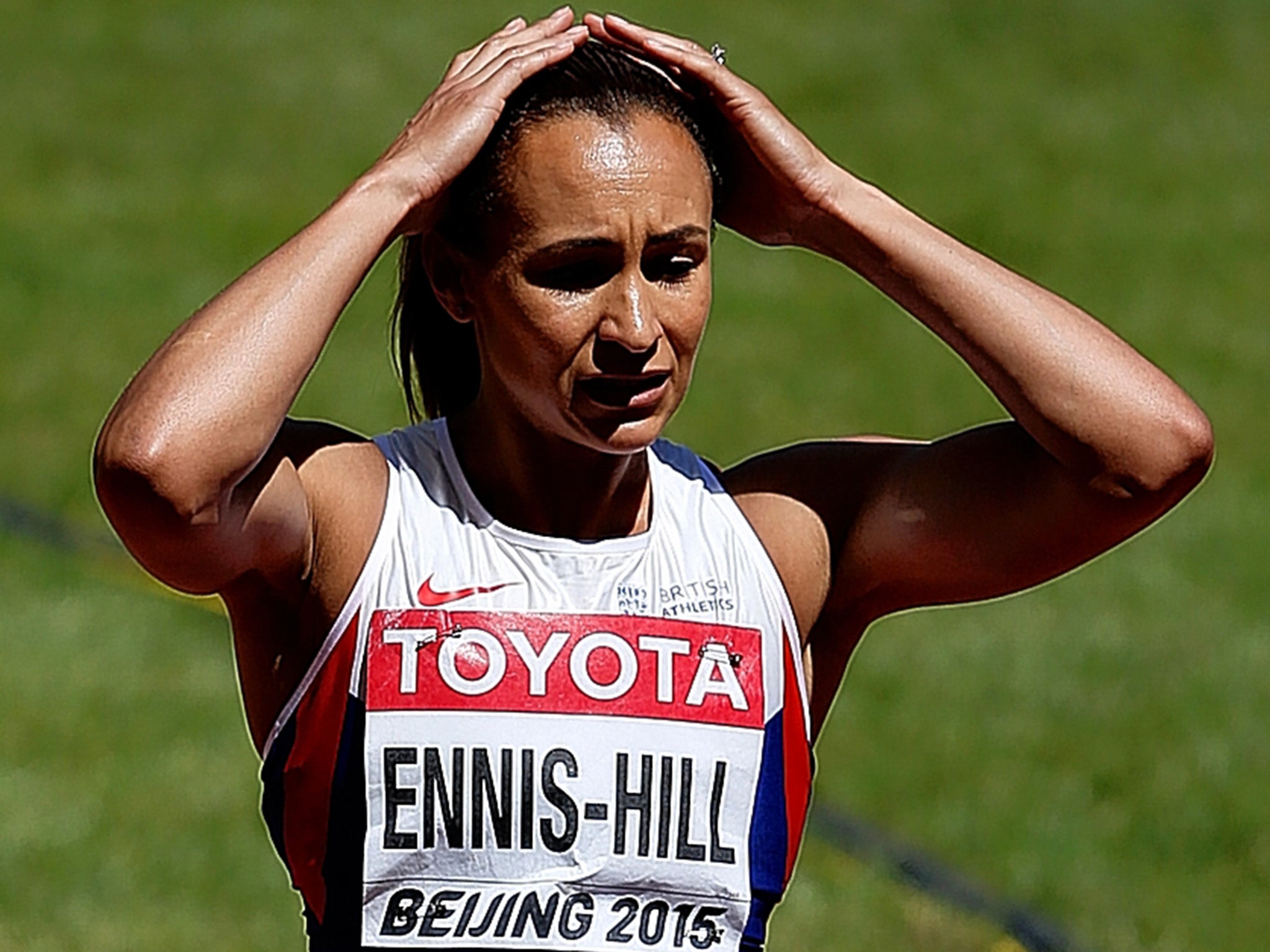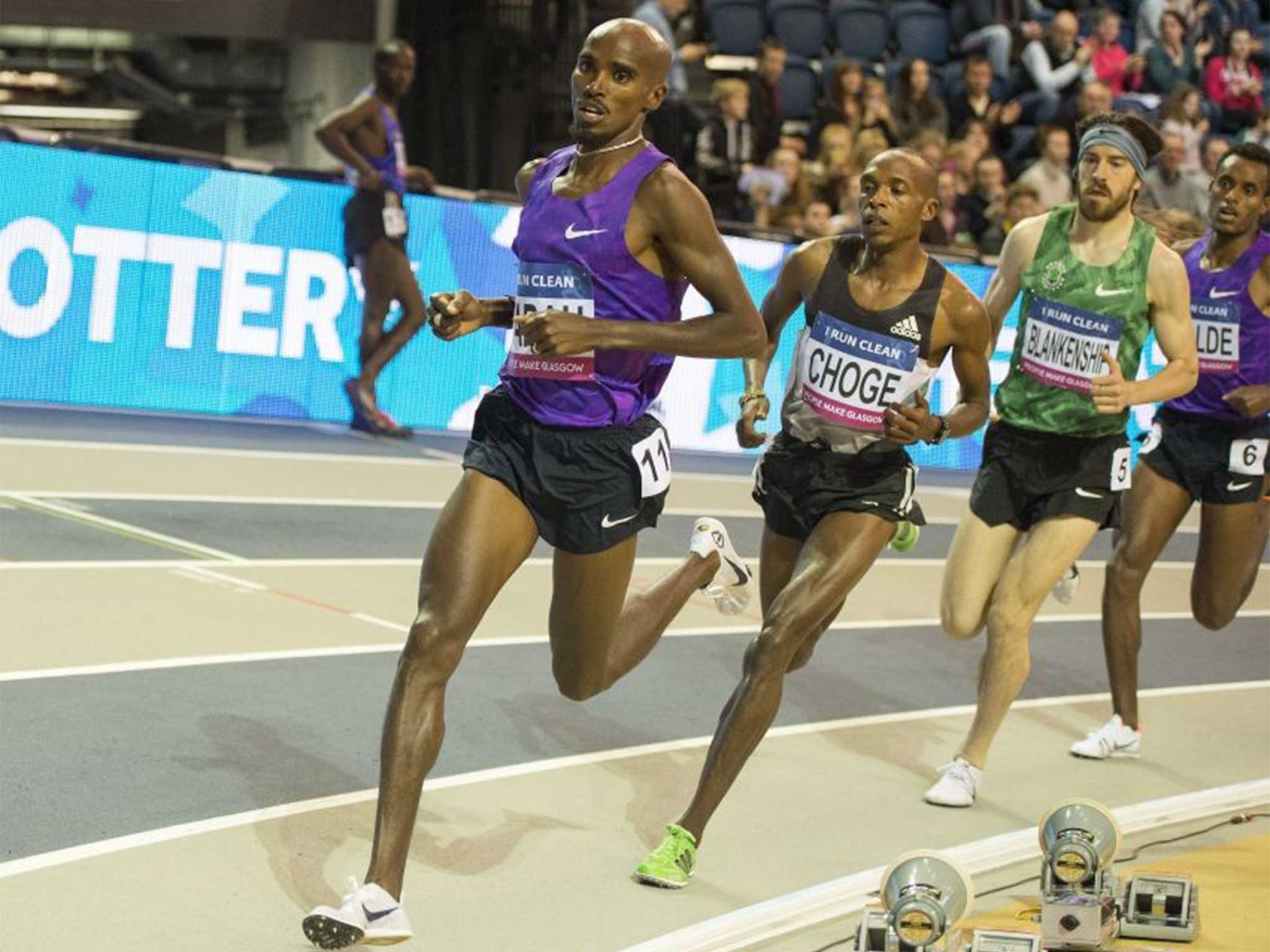Sebastian Coe: British athletics stars are 'hiding from competition'
'I want to see more athletes competing'

Your support helps us to tell the story
From reproductive rights to climate change to Big Tech, The Independent is on the ground when the story is developing. Whether it's investigating the financials of Elon Musk's pro-Trump PAC or producing our latest documentary, 'The A Word', which shines a light on the American women fighting for reproductive rights, we know how important it is to parse out the facts from the messaging.
At such a critical moment in US history, we need reporters on the ground. Your donation allows us to keep sending journalists to speak to both sides of the story.
The Independent is trusted by Americans across the entire political spectrum. And unlike many other quality news outlets, we choose not to lock Americans out of our reporting and analysis with paywalls. We believe quality journalism should be available to everyone, paid for by those who can afford it.
Your support makes all the difference.Sebastian Coe, the IAAF president, has accused British athletes of hiding away from major championships.
Britain ended the World Indoor Championships in Portland, Oregon, on Sunday with just three medals – a silver and two bronzes – to mark their worst medal count at a top-level event since 2006 and only the second time since 1997 that they have not left the World Indoors with at least one gold.
The 23-strong team was missing a host of more established names, who opted to forgo the championships to focus on the Olympics in Rio this summer.
Coe said: “I want to see more athletes competing. I think some athletes are hiding away from competitions and there is no antidote to competition. There really isn’t.
“You are not going to get it on the training track. You are not going to get it at a Diamond League, where you are just following a pacemaker. You do need to learn the craft.
“These are events you do have to use to give your athletes the experience, because the difference between going for a one-off in a Diamond League and being happy that you have managed to follow pacemakers is a very different game from being out there and having to think on your feet in races.”
Coe, though, singled out 800-metre runner Lynsey Sharp for praise. The Scot had been reluctant to compete in Portland but decided it would be beneficial on the road to Rio. She failed to make her final but Coe said: “Lynsey has been here and learned and actually you shouldn’t go that long not smelling the changing room. Competition is a learned experience. Nobody at the end of your career cares if you have won a Diamond League. At the end of a career your performances at championship level define you.”
Coe was also critical of the lack of depth among British distance runners in Portland. Michael Rimmer and Guy Learmonth had been invited to compete in the 800m by the IAAF, but that approach was rejected by British Athletics, which deemed the pair unlikely to be in medal contention.
“It’s disappointing not to see 800m runners here,” said Coe. “I find that a bit painful. I worry that the formative learning years, particularly in middle distance, are being lost on occasions like this.
“It starts and ends with coaching. You either have world-class coaching or you haven’t. We’ve clearly got world-class coaches – Toni [Minichiello] doing what he’s doing with Jessica [Ennis-Hill] and Fuzz [Caan] doing what he’s doing with Robbie [Grabarz], but I worry in this area we’re falling behind and it’s going to be hard to pull that back.”

Despite Britain finishing a lowly 16th in the medal table, the team’s performance director, Neil Black, defended his athletes’ showing and those who opted not to compete.
“I’m not interested in where we finished in the medal table,” he said. “I’m content with three medals. I’m content because I understand what’s going on and this was about preparation for Rio and learning and that’s what we and a number of athletes and coaches have done.”
On the eve of the championships, Black had said his athletes were “out to kill” but, in the aftermath, he conceded, “I don’t think we did kill, no. No, we didn’t.”
The sole medals came in the form of a silver from Grabarz in the men’s high jump, an amazing achievement less than two years after fearing he would never compete again following knee surgery, and two bronze medals from Lorraine Ugen in the long jump and Tiffany Porter in the 60m hurdles.
But Black said it was wrong that he and his team should be criticised on the showing in Portland. “Judge me alone on Rio,” he said. “We’re focusing on Rio. It’s about Rio, we’re not interested in coming to anything that isn’t going to help their preparation for Rio.
“You can lose everything now if you do the wrong things, so you will not find me trying to persuade people to do things where it wasn’t in their plan that we agreed with them many months ago.”
Join our commenting forum
Join thought-provoking conversations, follow other Independent readers and see their replies
Comments